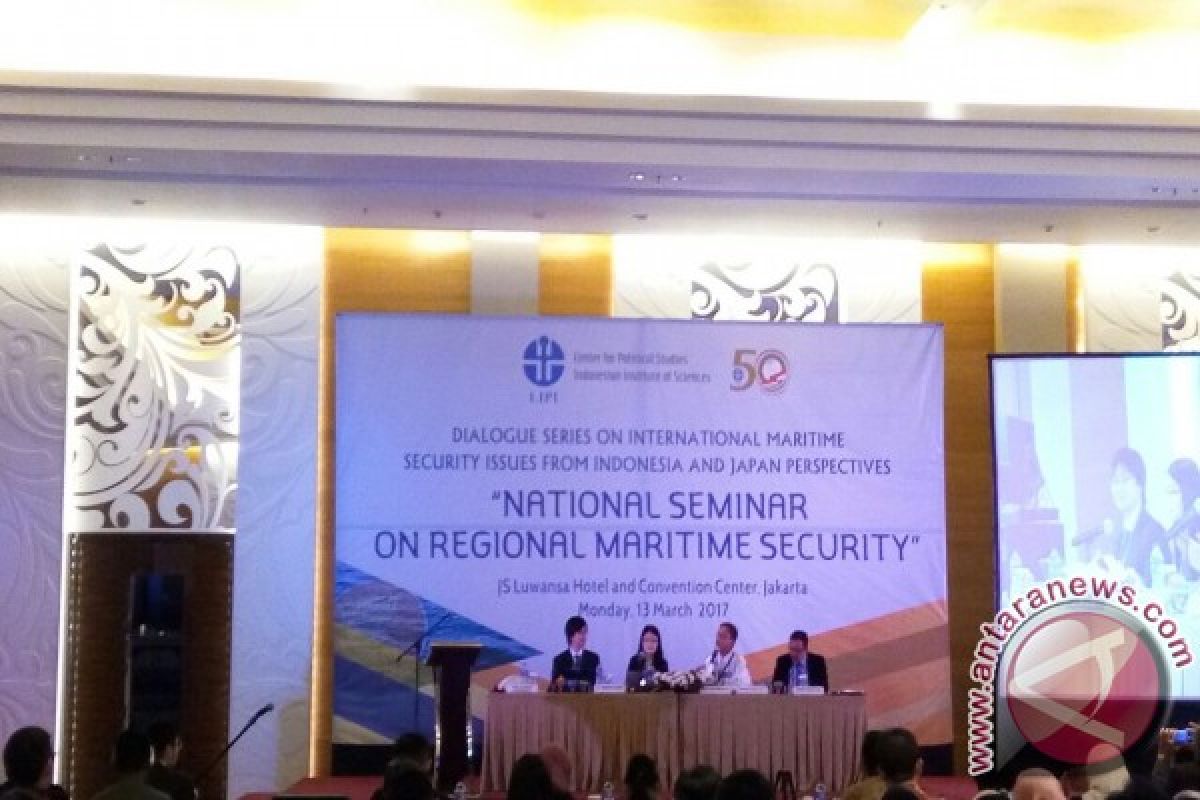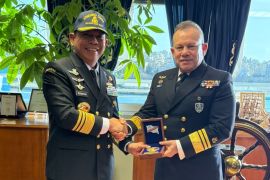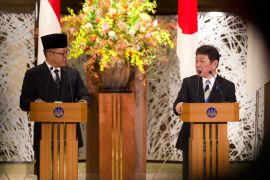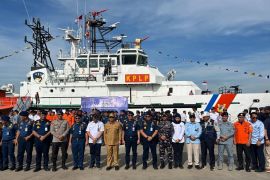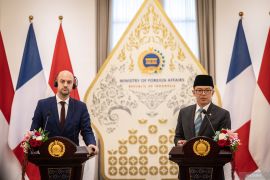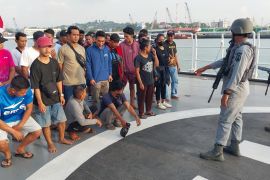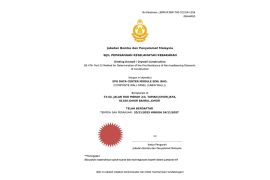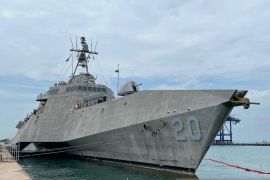The US engagement in the Southeast Asian affairs has become vagueJakarta (ANTARA News) - Maritime security has remained a critical issue in the cooperation between Japan and the Association of Southeast Asian Nations (ASEAN).
The Joint Statement of the Japan-ASEAN Commemorative Summit in December 2013 had clearly said that they underscored the importance of maintaining peace, stability, and prosperity in the region and promoting maritime security and safety and were committed to enhancing maritime security and safety cooperation.
The National Security Strategy decided by the cabinet in December 2013 made clear that Japans basic principle, in terms of the maritime issue, is to pursue open and stable seas.
Japans political elites are showing greater interest in maritime security in Southeast Asia that embraces various components ranging from non-traditional ones, such as anti-piracy and crackdown on cross-border crimes, to traditional security matters, such as territorial issues in the South China Sea.
Japan had already begun offering assistance to the non-traditional security aspect of maritime security in Southeast Asia. However, currently, there is growing interest among Japans political elites towards the traditional security aspect.
Prof. Mie Oba from the Tokyo University of Science remarked that the most important rationale behind the increasing Japanese interest in it is the concern over the rise of China and its actions in the South China Sea.
Japans interest earlier mainly focused on the Sino-Japan tensions over the East China Sea, she pointed out.
However, the rapid expansion of Chinas leverage in international relations in East Asia and its assertive stance, both in the East and South China Sea, have raised concerns among Japanese political elites over the growing Chinese threat on maritime security in East Asia.
In other words, East Asia, including Northeast Asia and Southeast Asia, are now being perceived as one strategic sphere due to Chinas actions in the East and South China Sea.
This Japanese stance on the new regional circumstances, in terms of maritime security and the rise of Chinese threat, were already apparent in the National Security Strategy, which was outlined by the cabinet in December 2013.
After 2014, Chinas deployment in the East and South China Sea became more assertive than before. The reclamation of islands and rocks and the construction of various facilities on them in the South China Sea have been rapidly promoted by China and have led to increased tensions between China and non-claimant countries, such as Indonesia, regarding Chinas expanding activities. It has also led to rising concerns in Japan on Chinas role in the region.
Hence, Oba affirmed that the ASEAN has undoubtedly embraced the important role of promoting and maintaining peace and stability in Southeast Asia and has succeeded in building an ASEAN-centric regional architecture and securing a stable political and security situation in broader regions, such as the Asia Pacific and East Asia.
"After the advent of the Trump administration, the US engagement in the Southeast Asian affairs has become vague. Instead, Japans role in maintaining security and stability in East Asia, including in Southeast Asia, will have to expand, but the specific policies promoted by Japan should be carefully examined," she noted.
Japan should continue to demonstrate its support for ASEANs efforts to enhance maritime security in the region, including creating the Code of Conduct (COC) and enhancing cooperation and discussion in the framework of the ASEAN Maritime Forum and Extended ASEAN Maritime Forum.
Japan should then continue to contribute to capacity building of coastguards of Southeast Asian countries.
In addition, Japan should enhance its support to set regional rules to maintain maritime security. From this point of view, Japan should encourage the creation of the COC between China and the ASEAN countries, but it should provide the foundation of region-wide rules and norms in terms of maritime security.
Japan should encourage the US, under the Trump administration, to maintain its involvement in that part of Asia. At the same time, Japan should also step up its efforts to formulate open regional governance mechanisms that would be important in Southeast Asia and East Asia. Maritime security cooperation should be one of the important pillars for Japans new role in the region.
Sound Communication
A researcher from the Indonesian Institute of Sciences Riefqi Muna stated that communication among state leaders will solve the problems related to regional maritime security.
"To promote maritime security, we must restrict force in defusing tensions between regions and establish communication among state leaders," he affirmed.
The increase in dialog and maritime diplomacy between the academic and practitioner communities should be promoted.
"In principle, we must build security cooperation. There should be a new approach to realize security," he noted.
He emphasized that the new approach should prioritize cooperation among countries in the region as part of the efforts to address regional issues.
"The approach should not be based on the interests of the region with weapons. The approach should highlight the importance of cooperation and not competition," he remarked.
Meanwhile, Deputy of Maritime Sovereignty at the Coordinating Ministry for Maritime Affairs Arief Havas Oegroseno remarked that ASEAN leaders should unite to create peace and stability in Southeast Asia.
"ASEAN has a strategic role in maintaining stability in the region. ASEAN should carry out its role in that context," he remarked.
Traditionally, there are three leaders in the region: the US, ASEAN, and China. The US and China have an agreement or cooperation with some ASEAN countries. The US also has agreements with countries in East Asia: Japan and South Korea.
The US and China should cooperate with the ASEAN to support regional stability. The US and China should not view ASEANs cooperation as a form of competition.
Oegroseno suggested that the ASEAN leaders should sit together with the Chinese president to resolve the South China Sea dispute.
"If it cannot be realized, then the South China Sea dispute will not be resolved," he noted.
He said the ASEAN is one of the driving factors for maintaining and promoting peace and stability of the region.
Maritime areas in Indonesia and Southeast Asia are strategic routes for shipping and trade, linking the Pacific Ocean to the Indian Ocean.
In addition, the waters hold huge potential in the form of marine resources and fisheries that contribute significantly to the global fish production.
However, it would be difficult to develop and utilize such potentials optimally if security and safety in these waters are not maintained properly.
(T.A063/KR-BSR/O001/B019)
Reporter: Azis Kurmala
Editor: Fardah Assegaf
Copyright © ANTARA 2017
